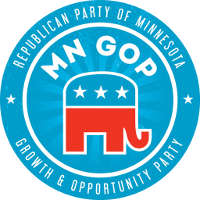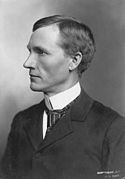This page is based on this
Wikipedia article Text is available under the
CC BY-SA 4.0 license; additional terms may apply.
Images, videos and audio are available under their respective licenses.

The 1960 Minnesota gubernatorial election took place on November 8, 1960. Republican Party of Minnesota candidate Elmer Andersen defeated Minnesota Democratic–Farmer–Labor Party challenger Orville Freeman.

The 1958 Minnesota gubernatorial election took place on November 4, 1958. Minnesota Democratic–Farmer–Labor Party candidate Orville Freeman defeated Republican Party of Minnesota challenger George MacKinnon.

The 1952 Minnesota gubernatorial election took place on November 4, 1952. Republican Party of Minnesota candidate C. Elmer Anderson defeated Minnesota Democratic–Farmer–Labor Party challenger Orville Freeman.
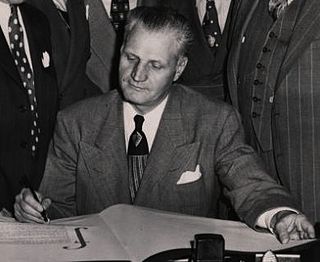
The 1948 Minnesota gubernatorial election took place on November 2, 1948. Republican Party of Minnesota candidate Luther Youngdahl defeated Minnesota Democratic–Farmer–Labor Party challenger Charles Halsted.

The 1946 Minnesota gubernatorial election took place on November 5, 1946. Republican Party of Minnesota candidate Luther Youngdahl defeated Minnesota Democratic–Farmer–Labor Party challenger Harold H. Barker.
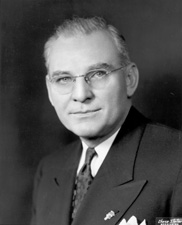
The 1944 Minnesota gubernatorial election took place on November 7, 1944. Republican Party of Minnesota candidate Edward John Thye defeated Minnesota Democratic–Farmer–Labor Party challenger Byron G. Allen. As the Democratic Party of Minnesota and Farmer–Labor Party merged earlier in the year, this was the first gubernatorial election in which the parties ran a combined ticket. The vote change below reflects the departure from the combined Democratic and Farmer–Labor totals in 1942.

The 1942 Minnesota gubernatorial election took place on November 3, 1942. Republican Party of Minnesota candidate Harold Stassen defeated Farmer–Labor Party challenger Hjalmar Petersen. This was the last election in which the Democratic Party of Minnesota and the Farmer–Labor Party ran separate candidates; in 1944, both parties ran under the umbrella of the Minnesota Democratic–Farmer–Labor Party.

The 1940 Minnesota gubernatorial election took place on November 5, 1940. Republican Party of Minnesota candidate Harold Stassen defeated Farmer–Labor Party challenger Hjalmar Petersen.

The 1932 Minnesota gubernatorial election took place on November 8, 1932. Farmer–Labor Party candidate Floyd B. Olson defeated Republican Party of Minnesota challenger Earle Brown.

The 1930 Minnesota gubernatorial election took place on November 4, 1930. It was the first gubernatorial race to start in Minnesota since the beginning of the Great Depression, which contributed to the meteoric rise of the Farmer–Labor Party in the state. Farmer–Labor Party candidate Floyd B. Olson decisively defeated Republican Party of Minnesota challenger Raymond P. Chase.

The 1918 Minnesota gubernatorial election took place on November 5, 1918. Republican Party of Minnesota candidate J. A. A. Burnquist defeated Farmer–Labor Party challenger David H. Evans. This is the first gubernatorial election in Minnesota with a Farmer–Labor candidate.

The 1916 Minnesota gubernatorial election took place on November 7, 1916. Republican Party of Minnesota candidate J. A. A. Burnquist defeated Democratic Party of Minnesota challenger Thomas P. Dwyer.

The 1912 Minnesota gubernatorial election took place on November 5, 1912. Republican Party of Minnesota candidate Adolph Olson Eberhart defeated Democratic Party of Minnesota challenger Peter M. Ringdahl.

The 1910 Minnesota gubernatorial election took place on November 8, 1910. Republican Party of Minnesota candidate Adolph Olson Eberhart defeated Democratic Party of Minnesota challenger James Gray.

The 1904 Minnesota gubernatorial election took place on November 8, 1904. Democratic Party of Minnesota candidate John Albert Johnson defeated Republican Party of Minnesota challenger Robert C. Dunn.
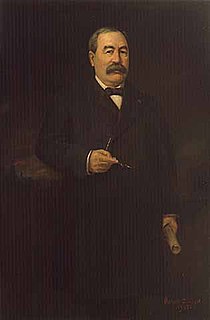
The 1902 Minnesota gubernatorial election took place on November 4, 1902. Republican Party of Minnesota candidate Samuel Rinnah Van Sant defeated Democratic Party of Minnesota challenger Leonard A. Rosing.

The 1898 Minnesota gubernatorial election took place on November 8, 1898. Democratic Party of Minnesota candidate John Lind defeated Republican Party of Minnesota challenger William Henry Eustis. This is the second of three successive elections in which John Lind ran as a candidate for a coalition formed from the Democrats and the People's Party.

The 1896 Minnesota gubernatorial election took place on November 3, 1896. Republican Party of Minnesota incumbent David Marston Clough narrowly defeated Democratic Party of Minnesota challenger John Lind. Lind later won the 1898 gubernatorial election and became the first Democrat elected to the office of Governor of Minnesota since Henry Hastings Sibley left office in 1860. 1896 was the first of three successive elections in which Lind ran for governor at the head of a coalition consisting of the Democratic Party and the majority faction of the People's Party.

The 1894 Minnesota gubernatorial election took place on November 6, 1894. Republican Party of Minnesota incumbent Knute Nelson easily defeated People's Party challenger Sidney M. Owen and Democratic Party of Minnesota candidate George Loomis Becker.

The 1890 Minnesota gubernatorial election took place on November 4, 1890. Republican Party of Minnesota incumbent William Rush Merriam defeated Democratic Party of Minnesota challenger Thomas Wilson and Farmers' Alliance candidate Sidney M. Owen.

